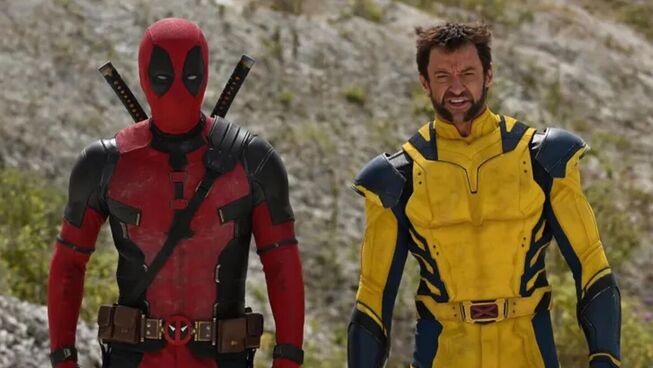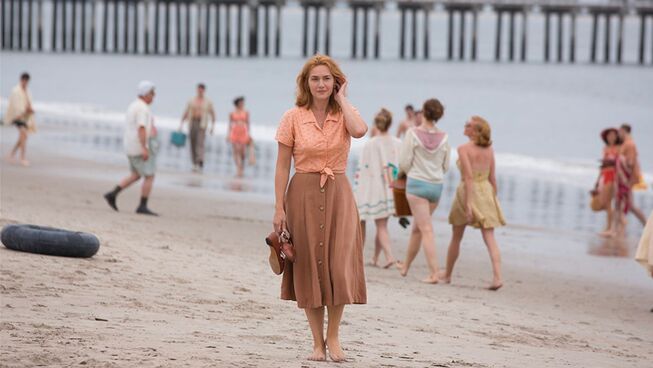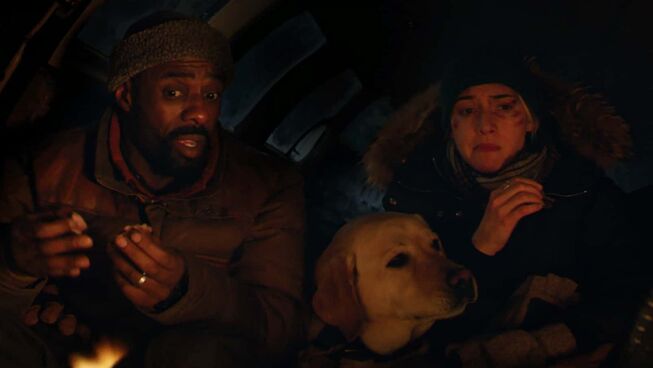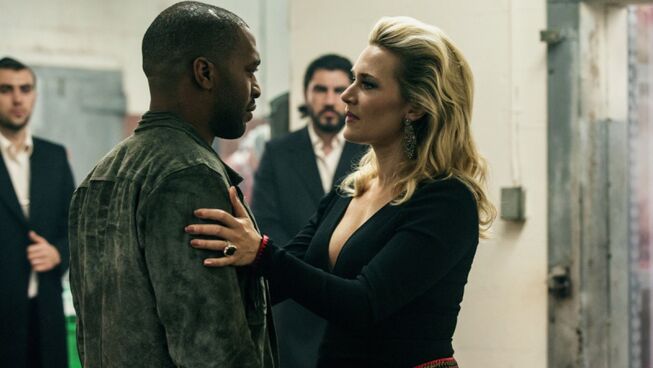Lee
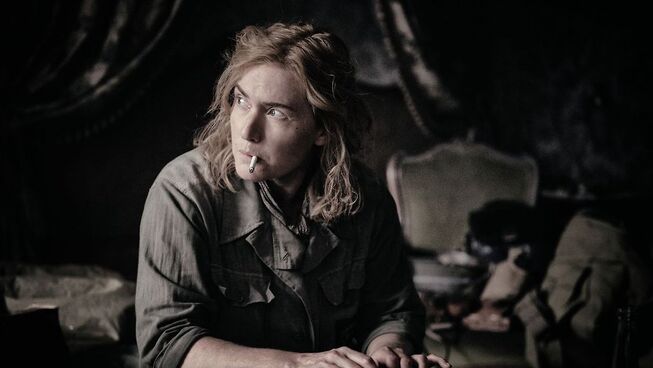
⭐️ ⭐️ ⭐️ 1/2 (out of 5)
American Lee Miller (Kate Winslet) was enjoying a dissipated life with her bohemian friends in France, having abandoned modelling for photography, when WWII broke out. She joined her artist lover (Alexander Skarsgård) in London and worked at British Vogue documenting the home front. But the intrepid Miller found the job stifling, so the photographer hustled her way through bureaucratic hurdles to the frontline. In France, she connected with photojournalist David E. Scherman (Andy Samberg), and together, they documented Europe’s devastation, leading Miller to become one of the most important war correspondents of all time.
Kate Winslet produced this passion project about the war correspondent, photographer and former model Lee Miller. The movie took eight years to make and, at one point, due to precarious funding, Winslet paid the entire cast and crew's salaries for two weeks. Yet despite the surprisingly frequent toplessness, this is far from a vanity project for Winslet. She is definitely the core, delivering a fantastic performance. Still, the focus is on the uncompromising and unflinching resolve of Lee Miller who’s stubborn determination led to her capturing some of the most haunting and heartbreaking records of the atrocities of WWII. While narratively, it feels muddled, the audience may not always be sure what is happening. Or what the film is trying to say or where it’s mainly going. The performances within are really engaging, along with the visuals. Andy Samberg is surprisingly nuanced; Marion Cotillard, Noèmie Merlant and Andrea Riseborough each get moments to shine, and Josh O’Connor and Alexander Skarsgård get great supporting moments. The film is easily at its best in the last third, where the wartime setting comes to the forefront with concussive bomb blasts, whizzing bullets and shaky cam capturing the chaos of the front lines, followed by the eerie quiet as the liberating Allies forces roll through and discover the atrocities that the Nazi regime have left behind. Underscored by beautiful piano-heavy music composed by Alexandre Desplat and edited by Oscar winner Mikkel E. G. Nielsen (Sound of Metal), Lee ultimately isn’t as good as all the talent involved may suggest, but it’s still a fitting biography of Lee Miller and a promising debut for director Ellen Kuras.
Reel Dialogue: Valuing the historical record
Lee Miller had an irreplaceable impact on journalism and war photography. She was unflinching in her capture of horrific images so that a record could be kept of the atrocities that the Nazi’s had committed. If it weren’t for this historical record, the likelihood would be even higher for people to forget, deny, or tragically repeat the horrors of the past.
In today's culture, many have forgotten or deny the historical record of Jesus. The Gospels were four eyewitness testimonies written in the years after Jesus’s life, death, and resurrection, and they are held by historians as some of the most reputable historical records from the Ancient world. The Bible is filled with history, and the reminder to not forget it, lest you be doomed to repeat it. In particular, it exhorts its readers to see how God has been present and actively working throughout history and that He is still working.
Have you explored the history of Jesus for yourself?
Things that we have heard and known, that our fathers have told us. We will not hide them from their children, but tell to the coming generation the glorious deeds of the Lord, and his might, and the wonders that he has done. - Psalm 78:3-4




